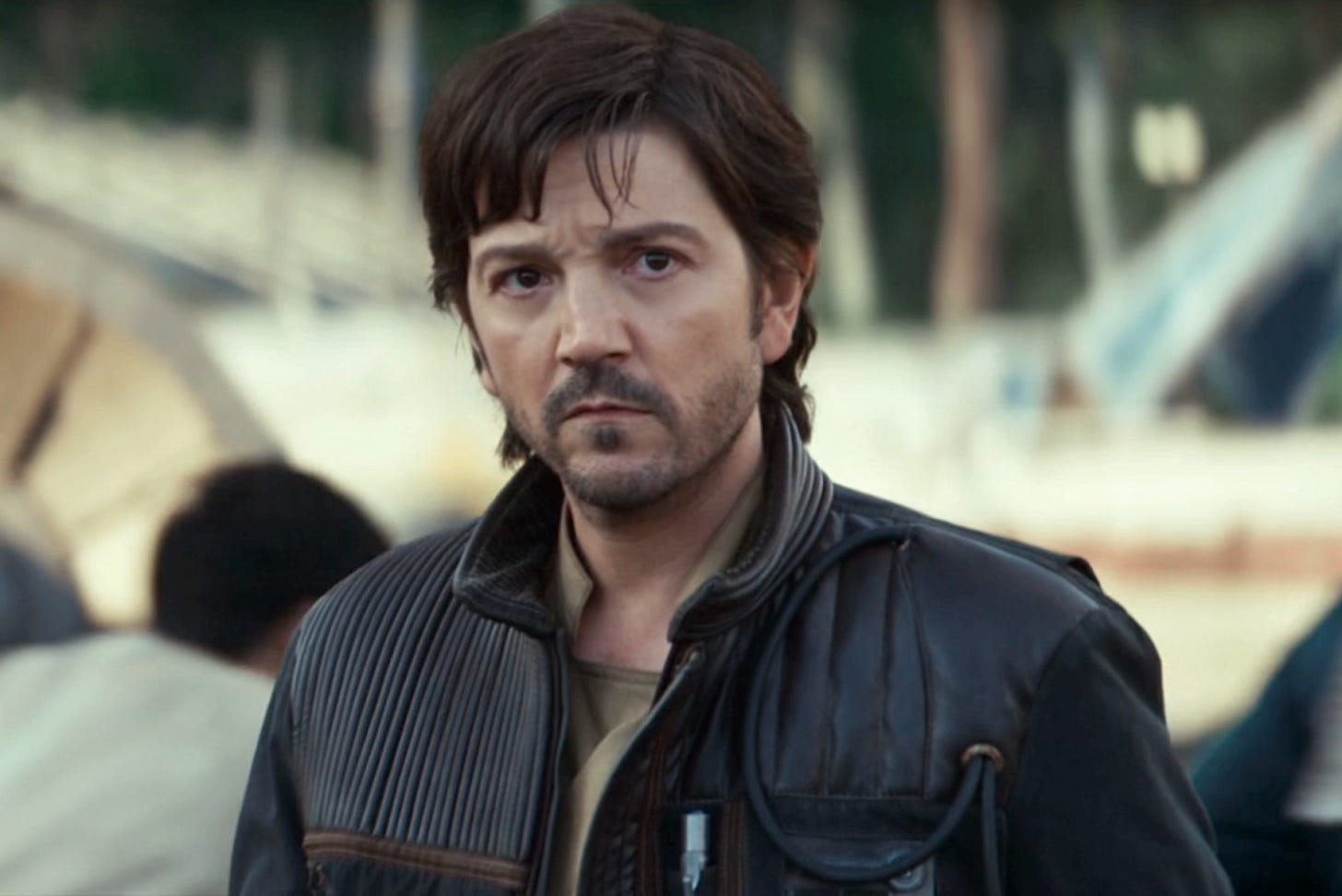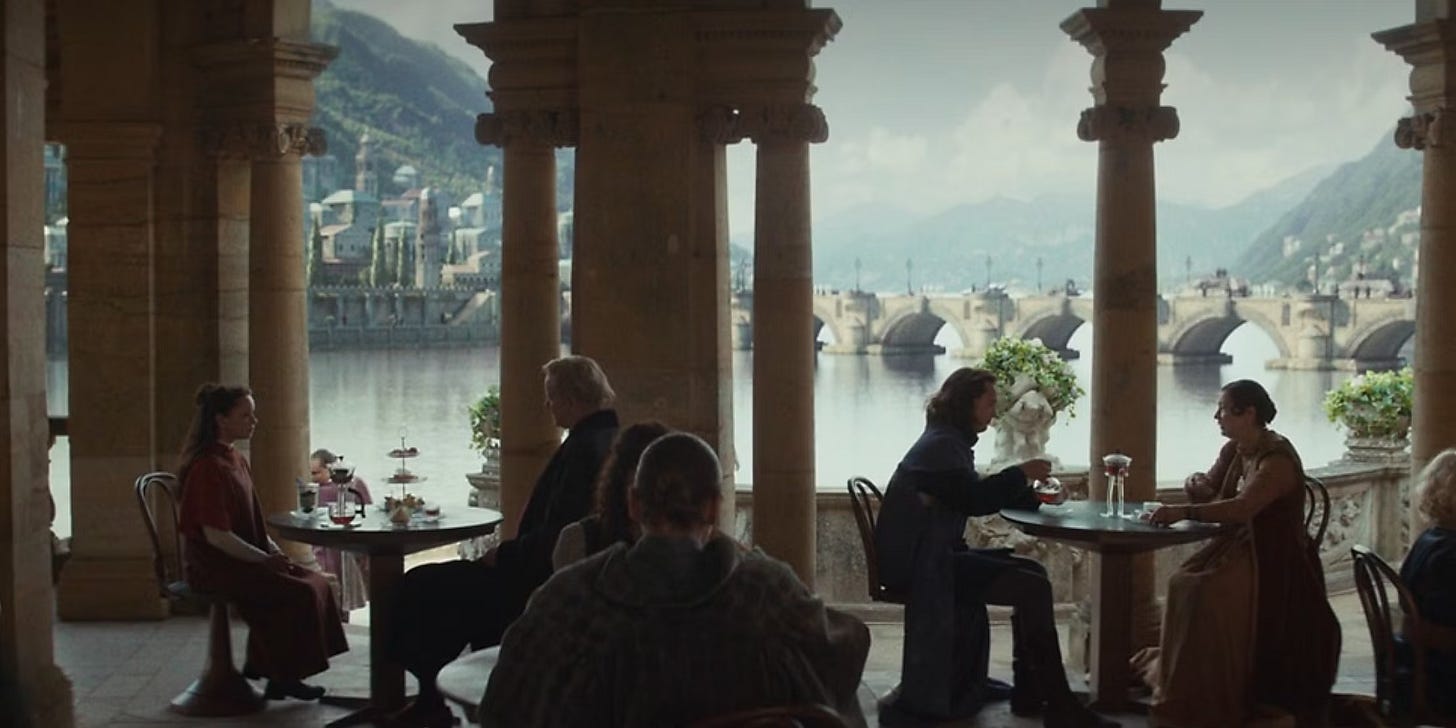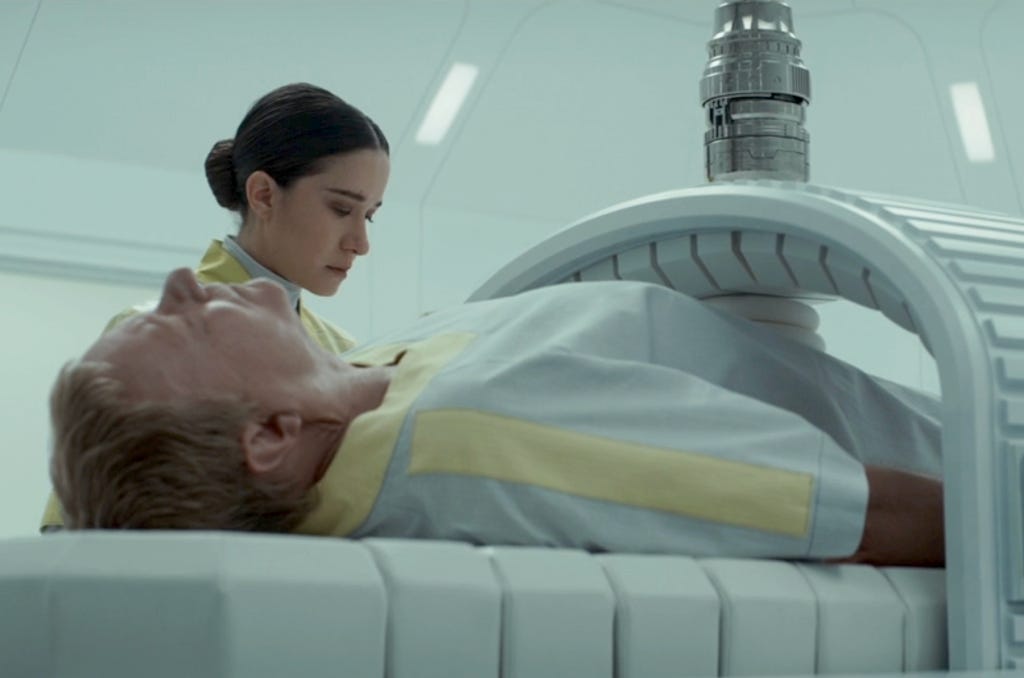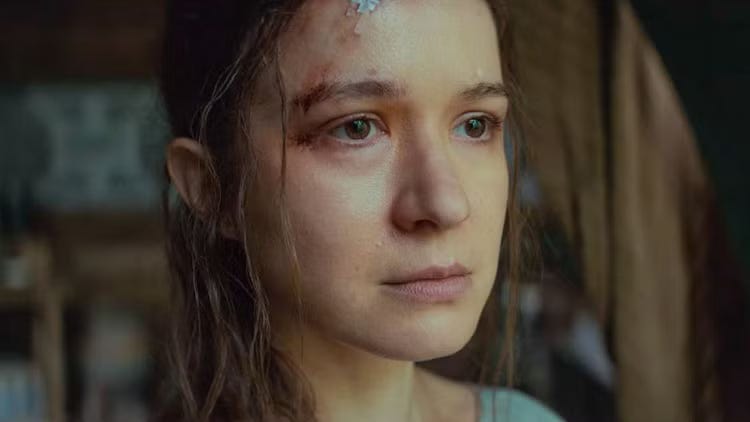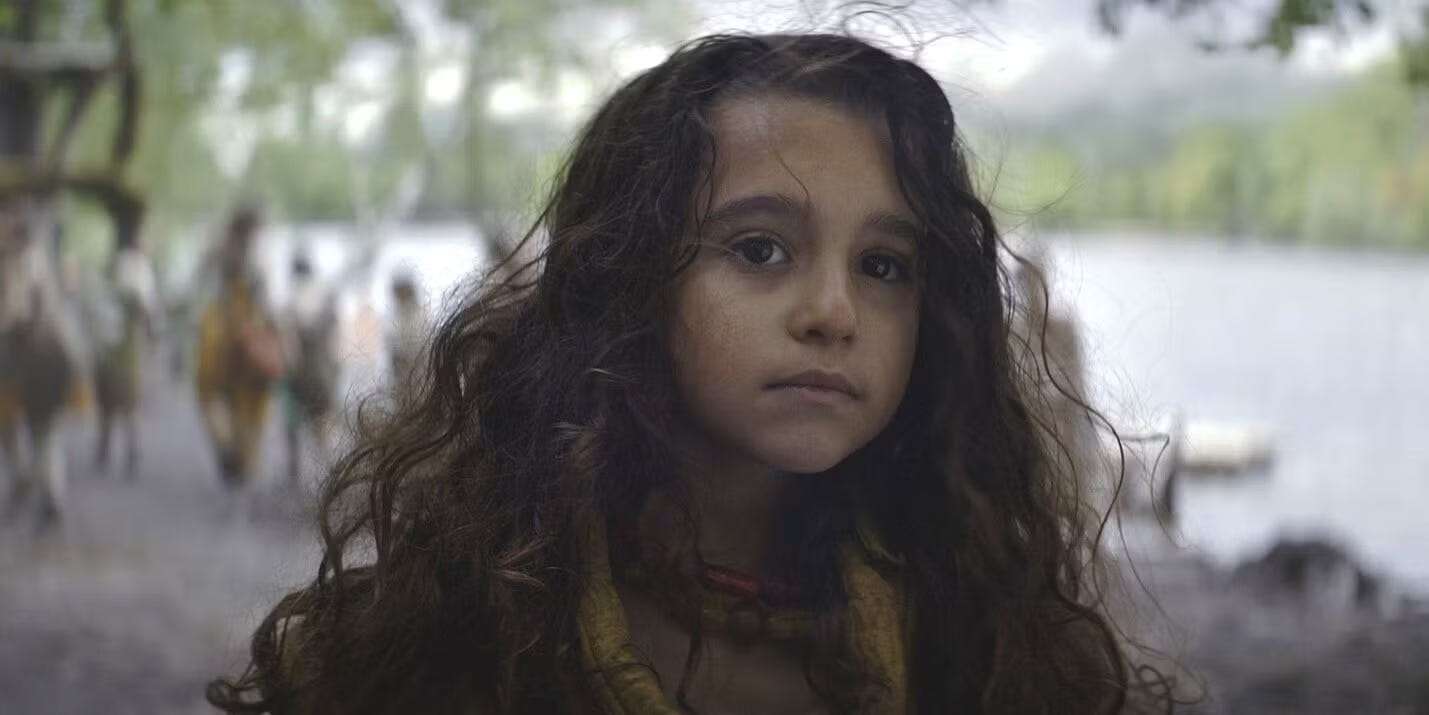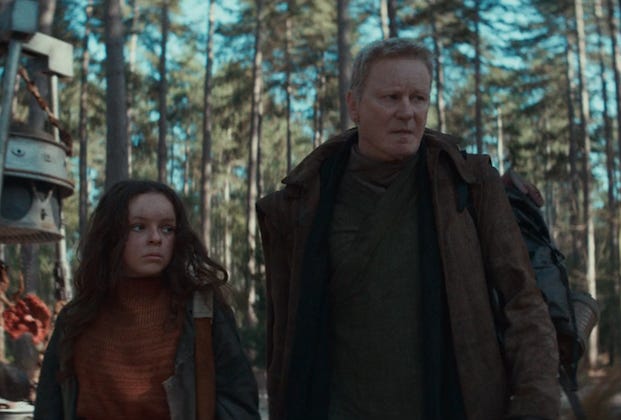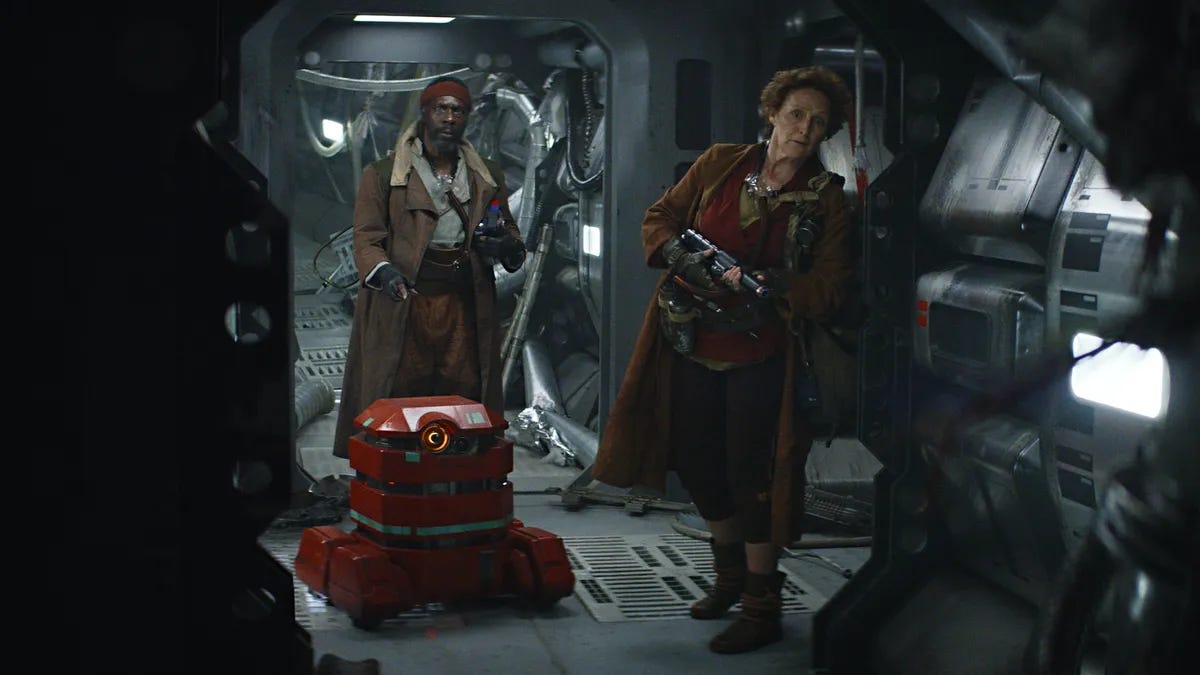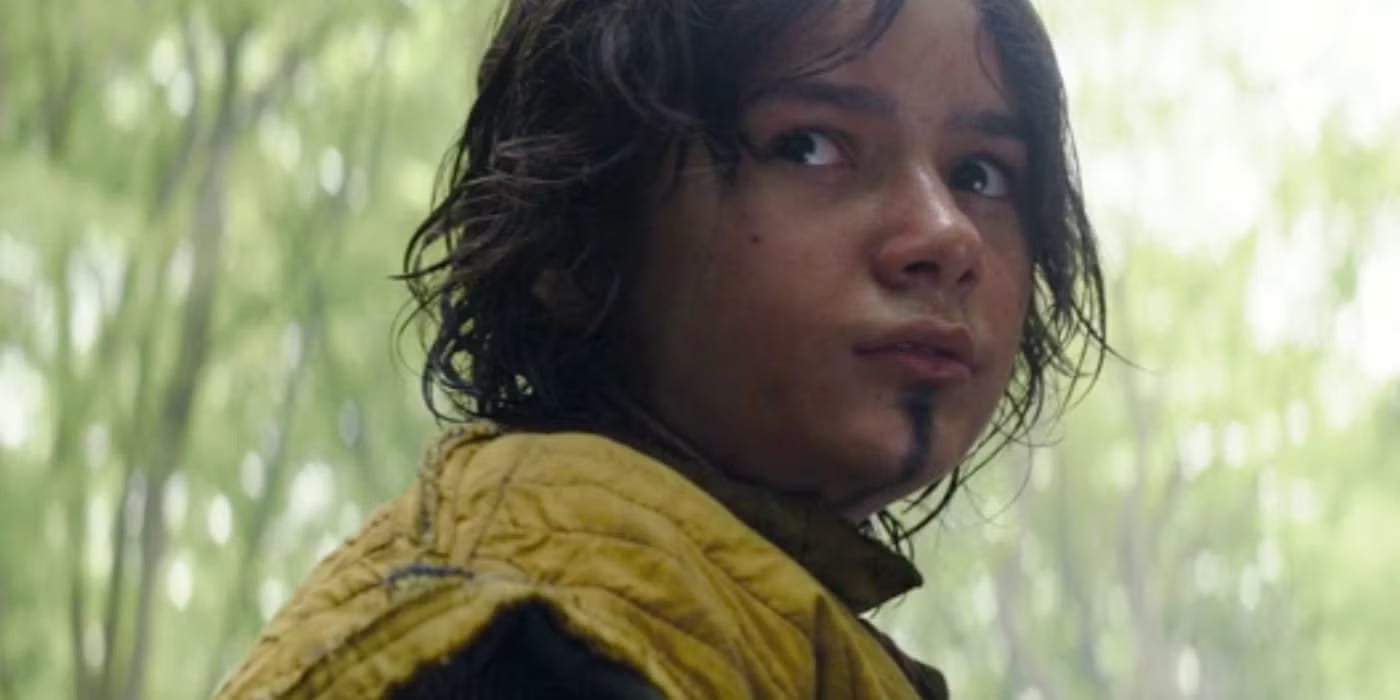The Short Take:
As the series pulls into the parking space that is Rogue One, we reach depths I didn’t think possible. Kleya emerges as the standout of the season. These last three episodes made me rethink the architecture of the entire series.
[SPOILER ALERT: This review will contain details from all of Andor, but especially the finale, Season 2, Episodes 10-12. ]
Image Credit: Variety
The Long Take:
I have been afraid to write this review.
Sure, I was incredibly busy when the finale dropped on Disney+ in May. Final grading for my classes, end of the school year activities for my kids, and then the endless recommendation letters for students (which I am happy to write, for the record). But really, what cuts through all the excuses is fear.
The Anatomy of a Fear
Why am I afraid? Because in order to write this final review of Andor Season 2, of the conclusion of a spectacular finale, season, and series, I must acknowledge — say out loud — the undeniable parallel between Star Wars and the real world right now. For me, it would feel disingenuous, even tone deaf were I to comment on a series featuring the Ghorman Massacre, Mon Mothma’s Galactic Senate speech, the fatal capture of Luthen, and the burgeoning Rebel Alliance on Yavin without also pointing to what has been happening all over the United States, but especially in my own backyard of Southern California: confrontations between protestors and the National Guard and marines in Los Angeles, California Governor Gavin Newsom’s scorching speeches at press conferences in response, and ubiquitous ICE raids in which a deputized group of agents abduct people and bring them to detention centers without trial.
Even in simply stating what is happening and implying that it may be similar the events of Andor, I am afraid. Afraid to endanger myself by merely expressing an opinion — what some would call dissent and others would call humane observation. Yes, even little me, with barely 200 subscribers (though I love and appreciate you all!), is afraid to say anything.
But isn’t that, in of itself, so very Andor? Silence in fear of retribution is a hallmark of authoritarianism, after all. We’ve seen again and again in this series that the Empire has created a galaxy in which the citizens of planet after planet have been suppressed and overtaken, with decisions made without them and not in their best interest. The Empire has fostered this fear of retribution to any opposition. That’s why Cassian needs to talk Niya through helping him commandeer a Tie Fighter, and why Kleya has to talk Lonni through helping her remove the listening device from the Tinian Codex. Because if you’re not a Cassian or a Kleya, that fear can paralyze you.
I’m not alone in this fear. The New York Times has had a lot of coverage recently about scholars and journalists voicing their concerns about a democracy in peril. Three Yale professors have moved to Canada. A reporter who worked for decades in Russia and the Ukraine, Masha Gessen, sees alarming similarities between what’s happening now and the rise of autocracy in Russia.
The (Un)Ease of Normalization
In Gessen’s interview with the Times, he explains the “normalization” of “things that we really shouldn’t live with.” That in an effort to cope, most people go about their normal lives in spite of mounting injustices. I have felt this acutely over the past few weeks, maybe even months; I will read a news article about heavily armed agents surrounding a park or watch a video of someone crying because a loved one has just been taken away, and that will weigh heavily on my heart. But then I’ll look up from my phone and pour milk in my child’s glass or drive them to a swim lesson or go grocery shopping or answer an email from a student or chat with a friend about a movie I saw the night before. And it feels like nothing has changed.
It’s hard not to feel complicit and powerless as everyday life carries on. I keep thinking of the flashback in Episode 10 of this season of Andor, where a young Kleya and Luthen sit across from each other in a cafe (on what I assume is Naboo), with dozens of other patrons sitting around them, enjoying an afternoon al fresco. Only I’m not Kleya or Luthen; I’m the idle patron. And when my thoughts drift towards ones that Kleya or Luthen would have in their refusal to look away, I feel the fear rush back.
Image Credit: Screen Rant
Listen to Yoda
Star Wars frequently cautions us about our own fears. It, on the one hand, acknowledges that fear is a natural reflex. It’s standard Jedi practice to confront fears or try to control them. How many times have we heard characters say some variation on “I sense much fear in you”? Anakin Skywalker becomes Darth Vader because he lets the fear of losing his mother and later Padme consume him. “Fear is the path to the Dark Side,” Yoda warns. And so here I am, finally. Under normal circumstances, I would find this much preamble tacky, but it is the only entry point into how I’m thinking about Andor right now.
It is usually scary, or at least uncomfortable to close the gap, to shorten the critical distance between the science fantasy of Star Wars and reality. Abstraction affords us a great deal. Star Wars, even Andor, which is at times accused of being less Star Warsy than most Star Wars, is fantastical enough that we may feel safer working out political ideas because it is so clearly not our world. But reading the news and absorbing social media these past few months has already felt alien and unreal. So, then, perhaps embracing the collapse between a galaxy far, far away and reality can, from a certain point of view, be productive, even positive. Star Wars, after all, is all about hope.
So what does Andor, and more specifically the finale, offer us? What lessons can it offer us in our own rebellion?
The Anonymous Rebel
When I think about the last three episodes of Season 2, I conclude that, ultimately, Andor tells us that there are always heroes that we will never see and will never know by name. And while that theme goes as far back as Luthen’s “sunrise I know I’ll never see” monologue back in Season 1, the evidence in this final arc that I would point to would be the inevitable yet nonetheless tragic death of Luthen and Cassian’s explosive defense of him in front of the Rebel Alliance leaders on Yavin.
Sitting around that table are the names and faces we know and remember, whether it’s Mon Mothma from the Original Trilogy, Bail Organa from the Prequel Trilogy (okay, so maybe not a face we remember), and even Senator Tynnra Pamlo, General Draven, or Admiral Raddus from Rogue One. But, a little like a Disney+ series sneaking around the canon shadows of the saga films, Luthen is a name that the official history of the galaxy would rather not give credence to, in spite of all he has sacrificed for the cause, including his life.
The tension between little r and big R Rebellion in this Yavin scene is palpable, with Cassian caught in the middle, as an agent who started in the grassroots network and then transferred to the more official, out in the open resistance. And this transition from one to the other, as one rises to prominence and the other quietly dies alone in a hospital room, is what makes the prequel project of Andor, of which we are reminded a lot more than in any other episode arc, feel worthwhile. It doesn’t feel like a cheap franchise trick, pointing and gawking at a reference to another story. It feels like this transition between stories, what came before and how we got to Princess Leia with the Death Star plans, is THE story that needs telling.
Image Credit: Variety
And in the process of this transition, it seems as though the old, less structured, espionage-reliant rebellion is having a conversation about itself and what it was. When Cassian comes to Luthen’s defense, he admits that Luthen’s methods were not always morally digestible or wise. He says, “When I say I know Luthen, I mean I know the good and the bad. I know what was wrong with him. I had a front row seat on that, and I made my choice two years ago, to join here and be part of this.” But he also argues for why they have no idea “how much you owe him,” declaring that, “none of that can take away what he did and how hard it was…it’s insulting to hear him run down by people who have given a fraction of his sacrifice to this Rebellion.” So even though we may not always have approved of what Luthen did and how he did it, he was still a critical part of the Rebel Alliance’s history. Just a largely invisible one.
Does Every Rebellion Need a Luthen?
Logic would dictate that if Luthen did all of this on his own and of his own accord, and if his name was largely lost to history (a.k.a. he wasn’t famous or historically significant), then anyone can start a rebellion from anywhere. Luthen did not wait until an official organization and its leadership told him what to do. As we see in his wig-tacular flashback, he was just an average disillusioned soldier who decided what he was doing was wrong and actually did something about it in response to that realization. And without people who just decide to do a thing, something like the Rebel Alliance with all its resources, chain of command, and infrastructure, would never have formed.
The question I keep coming back to, however, is how much does the series argue that Luthen’s secretive, morally gray methods were necessary to get to a more established Rebel Alliance? And therefore does it propose “the bad” Cassian refers to as a necessary means to an end? And will we, in our own world, be able to combat authoritarian injustices by exclusively “playing by the rules”? Breaking the rules, whether they be moral or legal, is wrong, but what do you do when those in power introduce a new set of rules that are in of themselves wrong? I don’t have an answer to this, but would love to hear readers’ thoughts.
Image Credit: Collider
Regardless of moral judgment of his actions, Luthen single-handedly created the next generation of Rebels in Cassian, Vel, and Kleya. They are all in varying stages of passing out of Luthen’s rebellion (small r) and into Mon Mothma and Bail Organa’s Rebellion (big R). By the final episode, we even see the incisively skeptical Kleya begin to soften as she looks around at an openly rebellious, orderly and civilized effort she does not recognize. Her final frame, in which the corner of her mouth rises ever so slightly, tells me that she will soon go through the same transition as Cassian and Vel, from unofficial spy to official upstanding Rebel. And, while I’m here, I have to say that I NEED a spin-off show about what Kleya does next. Because based on what we learn about her in Andor, I know that whatever it is, and no matter how short-lived it is, it is important.
The Binary Sunset of Cassian and Kleya
Kleya’s importance to Andor surprised many fans because she was a character many would have considered minor in Season 1, and yet she emerges as nearly equal to Cassian in prominence in this final arc. The flashbacks in Episode 10 (“Make It Stop”) and Kleya’s elite solo infiltration of the Imperial hospital alone position her as the central character of these final three episodes. Suddenly a show titled Andor feels like it is more aptly titled Andor and Marki (and yes, I had to look up her last name).
Image Credit: CBR
And if we zoom out to look at the structure of the entire series, Kleya becomes even more important. Season 2 ends with a flashback to Kleya’s childhood, featuring the moment Luthen found her and adopted her. Season 1, if you’ll recall, began with a flashback to Cassian’s childhood as “Kassa” on Kenari, focusing on the moment Maarva and Clem found him. This presents Cassian and Kleya as character bookends for the series. We begin and end with children born into the Empire’s reign. I really appreciated the unexpected depth that brought to the story.
Image Credit: TV Line
Before I go any further: no, Cassian and Kleya are not brother and sister. As much as the Endor vibes I wrote about for the penultimate trio of episodes may have foreshadowed such a revelation, and as much as I, for a brief moment, thought that the little girl in Cassian’s dream flashback might have been the same little girl playing young Kleya, a quick look at the cast list proves otherwise. April Woods plays “Little Kleya” and Belle Swarc plays Kerri, Cassian’s sister. So if you thought that the cutting to Cassian’s long lost sister at the start of the final montage of the final episode was some kind of major reveal, I don’t blame you. Though, when I look at photos of both of them now, it’s a little embarrassing that I thought they might be the same. When Luthen finds Kleya hiding on his ship, she also has long brown bedraggled hair and a dirty face. But the resemblance really ends there.
My suspicions of a deeper connection between Cassian and Kleya were confirmed in an interview Tony Gilroy and Diego Luna did with one of my favorite podcasters, Katey Rich, on The Prestige Junkie. Gilroy said that Cassian and Kleya are more brother and sister than we think because they are both children of Luthen.
Image Credit: CNET
And while it is true that Luthen acted as a mentor to both of them, my profiling of sooty young children in flashbacks may be more of an indicator that Cassian and Kleya come from similar backgrounds more broadly, beyond their connection through Luthen. They are both child casualties of the Empire’s occupation on so many planets. They are both subalterns, people from colonies who have been excluded, exploited, or overruled by an empire. And they are subalterns who chose to strike back. They took their grief and anguish and channeled it into action. That may be the way more interesting headline than they’re Star Wars twins, biologically or metaphorically. (Though it is fun when Star Wars rhymes.)
Still, like Luke and Leia, Cassian and Kleya serve as beacons of hope for the galaxy, a specific brand of hope that comes in the form of a new generation. When I think of them learning from Luthen, perhaps taking the good and leaving behind the bad or just evolving into something new, I also think of them as a hopeful lesson: the colonized children that survive the Empire will work and grow and wait. Their patience and determination will be rewarded. They will have their moment, as Cassian does so beautifully in Rogue One, to turn the tide.
Image Credit: Collider
Cassian and Kleya learned from Maarva and Luthen to turn pain and fear into resilience and strength. That’s a lesson that in some small way helps me think of my own role in all this. When I read the news or bear witness to abuses in our own world, I will try not to despair. I will resist normalization by continuing to say what is not normal, what is wrong, and what is cruel out loud. I will take lessons from Andor. I will remember that I have friends everywhere.
There will be times when the struggle seems impossible. I know this already. Alone, unsure, dwarfed by the scale of the enemy. Remember this. Freedom is a pure idea. It occurs spontaneously and without instruction. Random acts of insurrection are occurring constantly throughout the Galaxy. There are whole armies, battalions that have no idea that they've already enlisted in the cause. Remember that the frontier of the Rebellion is everywhere. And even the smallest act of insurrection pushes our lines forward. And then remember this. The Imperial need for control is so desperate because it is so unnatural. Tyranny requires constant effort. It breaks, it leaks. Authority is brittle. Oppression is the mask of fear. Remember that. And know this, the day will come when all these skirmishes and battles, these moments of defiance will have flooded the banks of the Empire's authority and then there will be one too many. One single thing will break the siege. Remember this. Try.
— Karis Nemik, “The Trail of Political Consciousness”




